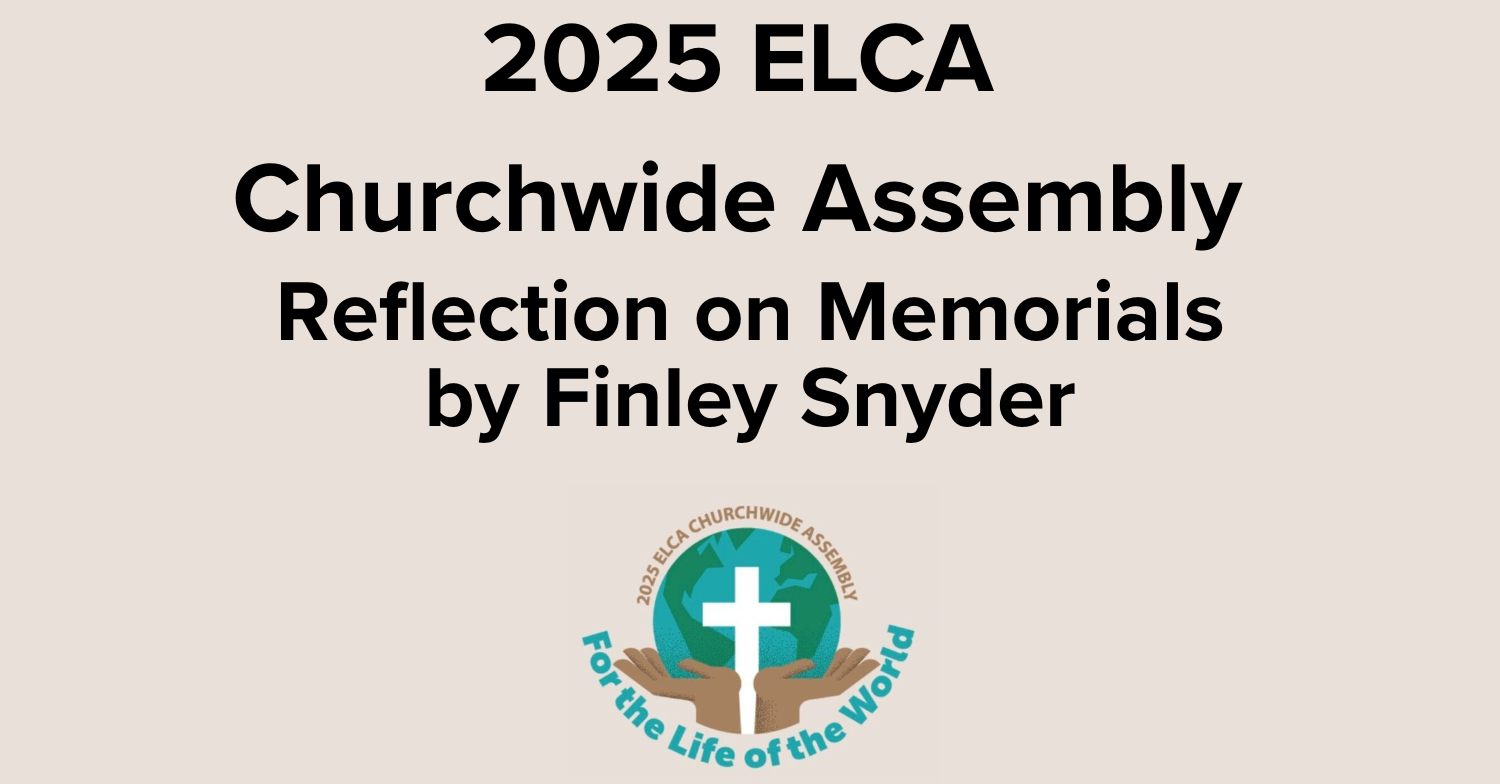
The bible says there is a season for everything, and this was most certainly true of the churchwide assembly. There were times of quiet and noise, thought and words, action and inaction, boredom and excitement.
When thinking back on the assembly as a whole the discussion of memorials, petitions from synod assemblies for the churchwide to take a certain action, was certainly an example of this. It was a time of excitement and disappointment, work and study, and through it all, fierce debate. Most of the memorials were voted on as a bloc, but a few were pulled out for separate consideration.
For each memorial, the memorials committee proposed an action in response, and the job of the church assembly was to either approve, deny, or change the recommended action.
Among those passed en bloc were a memorial proposing a reconsideration of the church’s teachings on euthanasia, several memorials affirming trans people’s status as children of God, several calls for environmental justice, and many more.
We didn’t have time to finish dealing with all the memorials pulled out, but we did discuss the memorial passed by our synod assembly on Indian Boarding Schools, as well as a memorial calling for an end to the Palestinian genocide.
The Indian Boarding School resolution passed quickly and painlessly, with four people speaking in favor before debate automatically ended based on the rules of the assembly (rules that were very useful in ensuring we moved along on time). The Palestine resolution, however, was the subject of extensive and divisive debate along with a fair amount of parliamentary maneuvering.
The bulk of the memorial was a call for the end of the genocide, directing all levels of the church to speak out and work towards justice in the Holy Land, including working with organizations within and outside the church, such as Sumud, the Lutheran World Federation, and the Evangelical Lutheran Church in Jordan and the Holy Land. It also directed the office of the presiding bishop to write a letter to the President, the Secretary of State, and Congressional leaders urging an end to weapons shipments and support of Israel’s war.
The debate was long and taxing and stirred complex feelings in me: hope and shame and anger and joy and everything in between. Through it all, we prayed and sang together as times of respite. There was something beautiful about this, that even in the midst of divisive discussion, we could raise our voices together in song.
The argument on the main part of the memorial could be divided into a few camps.
First, there were those, like me, who believed that it was the duty of the church to speak out on issues of justice like this in the strongest terms. As one speaker pointed out, this is a historic memorial that we can proudly point to for future generations and say, “see, the church was not silent.”
Second, were those who were firmly opposed to the memorial. They argued that if condemning anything, we should be condemning Hamas, that Israel was only doing what it must, some even going so far as to argue that we must not condemn “God’s chosen people.” I confess, dear siblings, that I felt considerable anger at those who seemed blind to the suffering of the Palestinian people. Yet they had just as much right to speak as I, and I reminded myself frequently that they were each beloved children of God with their own wisdom to share.
Third was a more in-between camp, those who mainly took issue not with the content of the memorial but its language. This camp added language affirming Israel’s “right to exist” which was further amended to affirm the right of the Palestinian people to their own sovereignty. There were rumors of another amendment to strike the word genocide from the memorial, but it ultimately did not materialize.
In the midst of the debate, which was divided over multiple days because of its length, we heard from the presiding bishop elect of the Evangelical Lutheran Church in Jordan and the Holy Land. He spoke of the plight of his church and the Palestinian people more broadly, in Gaza, in the West Bank, and throughout Israel.
In the end, despite the close debate, the memorial passed overwhelmingly. Sadly, we didn’t have time for the rest of the pulled-out memorials on abortion, rural ministry, and the CRLC. These memorials will go to the church council so that they can take action on them.
Overall, though we did get to everything we could have, I’m satisfied with the work we did. God bless.
Finley Snyder
St. Mark Rockford
